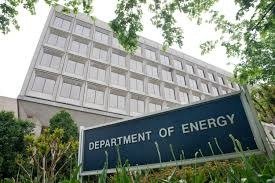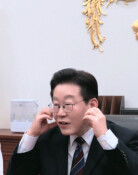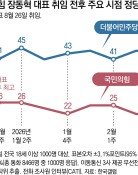U.S. keeps South Korea on sensitive country list
U.S. keeps South Korea on sensitive country list
Posted April. 16, 2025 07:29,
Updated April. 16, 2025 07:29

The U.S. Department of Energy’s internal policy designating South Korea as a “sensitive country” officially took effect on April 15. Despite the South Korean government’s request to be removed from the designation last month, the policy was enacted, and South Korea is still on the list. The South Korean government acknowledged that lifting the designation would “take more time” and said follow-up negotiations would continue.
According to the South Korean government, the Sensitive Country List (SCL) guideline, adopted in January under the Biden administration, categorizes South Korea under the lowest tier, “Other Designated Countries.” Starting April 15, South Korean researchers must submit documents at least 45 days in advance and receive approval before visiting U.S. Department of Energy-affiliated laboratories. U.S. researchers must also go through security procedures to visit South Korean research institutions.
During communications with Seoul, the U.S. reportedly made no mention of a timeline or process for lifting the designation. The two sides have been discussing the issue through a working-level consultation body involving South Korea’s Ministry of Science and ICT, the Ministry of Trade, Industry and Energy, the Ministry of Foreign Affairs, and the U.S. Department of Energy. A South Korean official said the U.S. had assured them the designation would not affect bilateral R&D cooperation, adding that both sides had agreed to continue follow-up talks.
Still, prospects for the U.S. lifting the designation in the near term, such as by the end of this month or early next month, appear slim. U.S. officials are reportedly going through internal procedures to verify whether the conditions prompting the designation have been resolved. In diplomatic circles, there are concerns that U.S. President Donald Trump could use the issue as a bargaining chip in future trade negotiations involving reciprocal tariffs.
고도예기자 yea@donga.com



![[단독]폴란드, 韓 해군 최초 잠수함 ‘장보고함’ 무상 양도 안받기로](https://dimg.donga.com/c/138/175/90/1/wps/NEWS/IMAGE/2026/02/27/133437397.1.jpg)

![‘노인 냄새’ 씻으면 없어질까?…“목욕보다 식단이 더 중요”[노화설계]](https://dimg.donga.com/c/138/175/90/1/wps/NEWS/IMAGE/2026/02/27/133434557.3.jpg)

